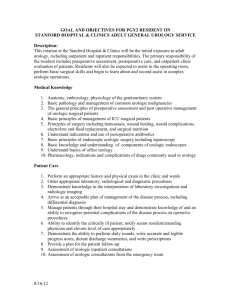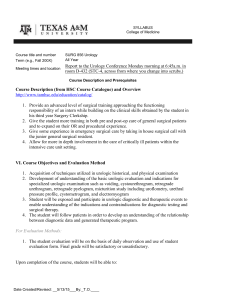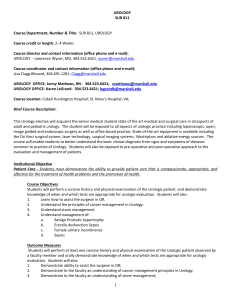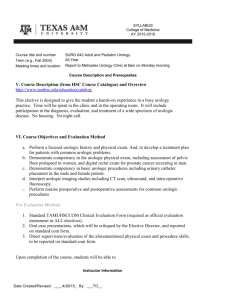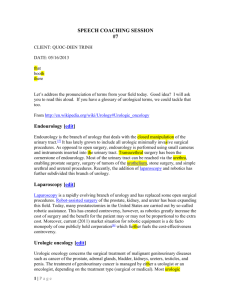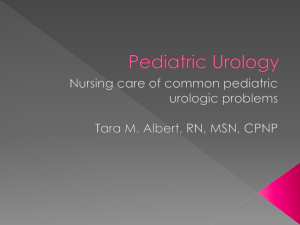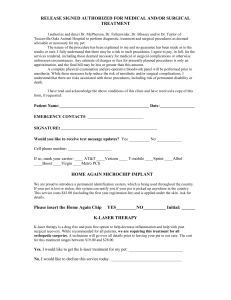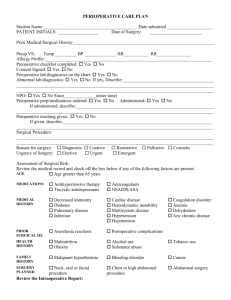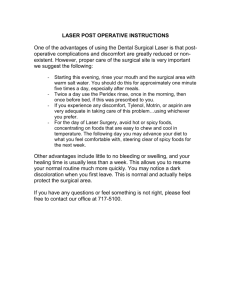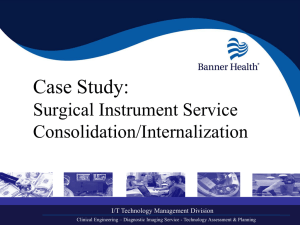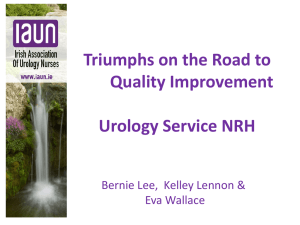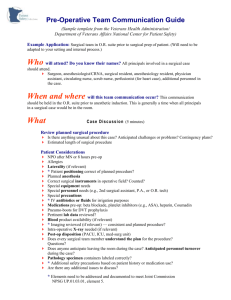goal and objectives for pgy3 (first year urology) resident on
advertisement
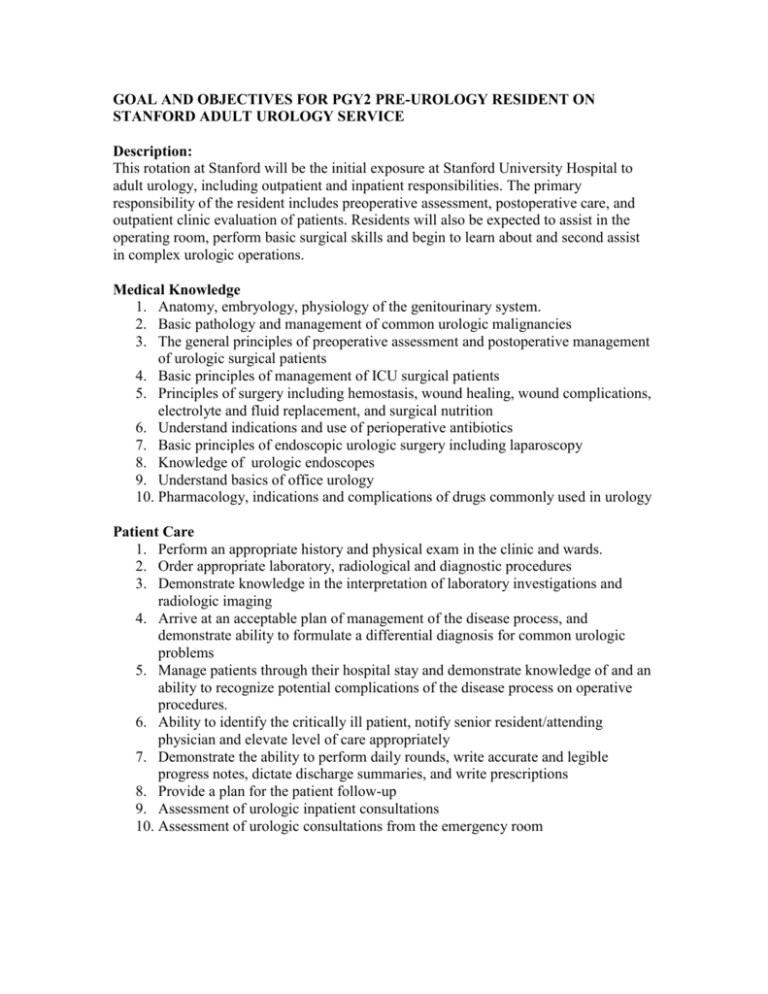
GOAL AND OBJECTIVES FOR PGY2 PRE-UROLOGY RESIDENT ON STANFORD ADULT UROLOGY SERVICE Description: This rotation at Stanford will be the initial exposure at Stanford University Hospital to adult urology, including outpatient and inpatient responsibilities. The primary responsibility of the resident includes preoperative assessment, postoperative care, and outpatient clinic evaluation of patients. Residents will also be expected to assist in the operating room, perform basic surgical skills and begin to learn about and second assist in complex urologic operations. Medical Knowledge 1. Anatomy, embryology, physiology of the genitourinary system. 2. Basic pathology and management of common urologic malignancies 3. The general principles of preoperative assessment and postoperative management of urologic surgical patients 4. Basic principles of management of ICU surgical patients 5. Principles of surgery including hemostasis, wound healing, wound complications, electrolyte and fluid replacement, and surgical nutrition 6. Understand indications and use of perioperative antibiotics 7. Basic principles of endoscopic urologic surgery including laparoscopy 8. Knowledge of urologic endoscopes 9. Understand basics of office urology 10. Pharmacology, indications and complications of drugs commonly used in urology Patient Care 1. Perform an appropriate history and physical exam in the clinic and wards. 2. Order appropriate laboratory, radiological and diagnostic procedures 3. Demonstrate knowledge in the interpretation of laboratory investigations and radiologic imaging 4. Arrive at an acceptable plan of management of the disease process, and demonstrate ability to formulate a differential diagnosis for common urologic problems 5. Manage patients through their hospital stay and demonstrate knowledge of and an ability to recognize potential complications of the disease process on operative procedures. 6. Ability to identify the critically ill patient, notify senior resident/attending physician and elevate level of care appropriately 7. Demonstrate the ability to perform daily rounds, write accurate and legible progress notes, dictate discharge summaries, and write prescriptions 8. Provide a plan for the patient follow-up 9. Assessment of urologic inpatient consultations 10. Assessment of urologic consultations from the emergency room Expected Technical Skills 11. Function as a first or second assistant in the operating room for urologic cases 12. Assemble basic urologic endoscopes including cystoscopes, ureteroscopes, nephroscopes 13. Perform cystoscopy independently 14. Handle tissues and surgical instruments in an appropriate manner, and demonstrate adherence to sterile techniques 15. Creation of a pneumoperitoneum and placement of laparoscopy ports 16. Closure of surgical wounds 17. Be able to tie knots one and two handed with good dexterity with both hands Professionalism 1. The ability to be honest, reliable and respectful of racial, gender and religious characteristics of patients, their families and other members of the health care team 2. Understand the professional, legal and ethical codes by which physicians are bound. 3. Exhibit appropriate personal and interpersonal professional behavior. 4. Deliver highest quality patient care with ethics, integrity, honesty and compassion 5. The ability to recognize when to seek assistance from peers and senior colleagues. 6. The ability to give and receive advice in a manner that is consistent with harmonious function of the health care system Interpersonal and Communication Skills 1. Listen effectively 2. Establish professional relationships with patients and their families 3. Inform patients and families about their condition at an appropriate and understandable level 4. Obtain a relevant history from the patient 5. Write clear consultation notes, progress notes, discharge summaries and clinic evaluations. 6. Present at ward round in a clear and organized manner. 7. Present patient details in indications conferences 8. Communicate effectively with allied health care professionals Systems-based Practice 1. Utilize health care resources wisely 2. Understand the importance of and mechanisms to safely utilize resources in a cost-effective manner to benefit the patients Practice-Based Learning and Improvement 1. Develop effective self-directed learning strategies for continuing education and assessment of knowledge base 2. Critically appraise sources of medical information and be aware of resources available 3. Read about clinical cases 4. Prepare and present at indications conferences 5. Participate actively at morbidity and mortality conferences 6. Actively participate at journal club 7. Participate in teaching medical students 8. Prepare and present clinical cases at grand rounds Methods of assessment of resident academic performance 1. 2. 3. 4. 5. 6. Three month general competencies evaluations on Stanford Medhub Yearly In-Service Exam Annual 360 degree evaluation Personal portfolio Laparoscopy skills log Simulators
